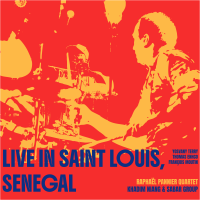When Barack Obama became the nation's first black president in January, many said he stood on the shoulders of those who fought for and sacrificed for civil rights.
Some of the most important music from the past 70 years of the movement is collected in Let Freedom Sing, a new three-disc, 58-song Time Life collection that cuts across genres with voices both famous and obscure. The earliest recording in the set is Billie Holiday's 1939 anti-lynching tune Strange Fruit, though the Southern Sons' 1941 Go Down Moses harks back further to spirituals and slavery field songs. The most recent, Free at Last by the Blind Boys of Alabama, was recorded in 2008.
Some songs address incidents — The Ramparts' The Death of Emmett Till, John Lee Hooker's The Motor City Is Burning— while others protest prohibitions, such as the Golden Gate Quartet's No Restricted Signs.
“You get the heart, the soul, the sentiment and the struggle of a people," says Public Enemy's Chuck D, a consultant on the project, who also wrote the introduction for the liner notes.
Chuck D, whose own The Pride is on the set, says songs such as the Isley Brothers' Fight the Power (also included) inspired him when he was young. He would later sample it on Public Enemy's track of the same name, which was written for Spike Lee's film Do the Right Thing.
With a few exceptions, the music is arranged chronologically, and the annotated liner notes by music historian Colin Escott provide the stories behind the songs and the historic context surrounding their release. For example, Nat King Cole recorded We Are Americans Too in 1956 after he was beaten onstage in Alabama during the bus boycotts. Cole's label, Capitol, refused to release the song.
By the time the civil rights movement was in full bloom in the 1960s and '70s, major R&B stars such as James Brown, Aretha Franklin, The Temptations, Sly and the Family Stone, B.B. King and Marvin Gaye were making hit records reflective of the era. There also were songs by gospel, folk and blues artists that offered hope and called for action.
Protest music is still made today but doesn't receive the same kind of exposure, Chuck D says. Once the staple of independent black radio stations, such songs no longer get record industry push or commercial radio airplay.
He points to Syl Johnson's searing 1969 tune Is It Because I'm Black, remade this year by R&B singer Syleena Johnson, with her father's help. The new version is unlikely to make many urban radio playlists, which favor more pop-oriented fare.
“In the black community, we can't hear something that means something to us," Chuck D says. “We've been stripped of what used to be our informational source."
For more information contact All About Jazz.
























